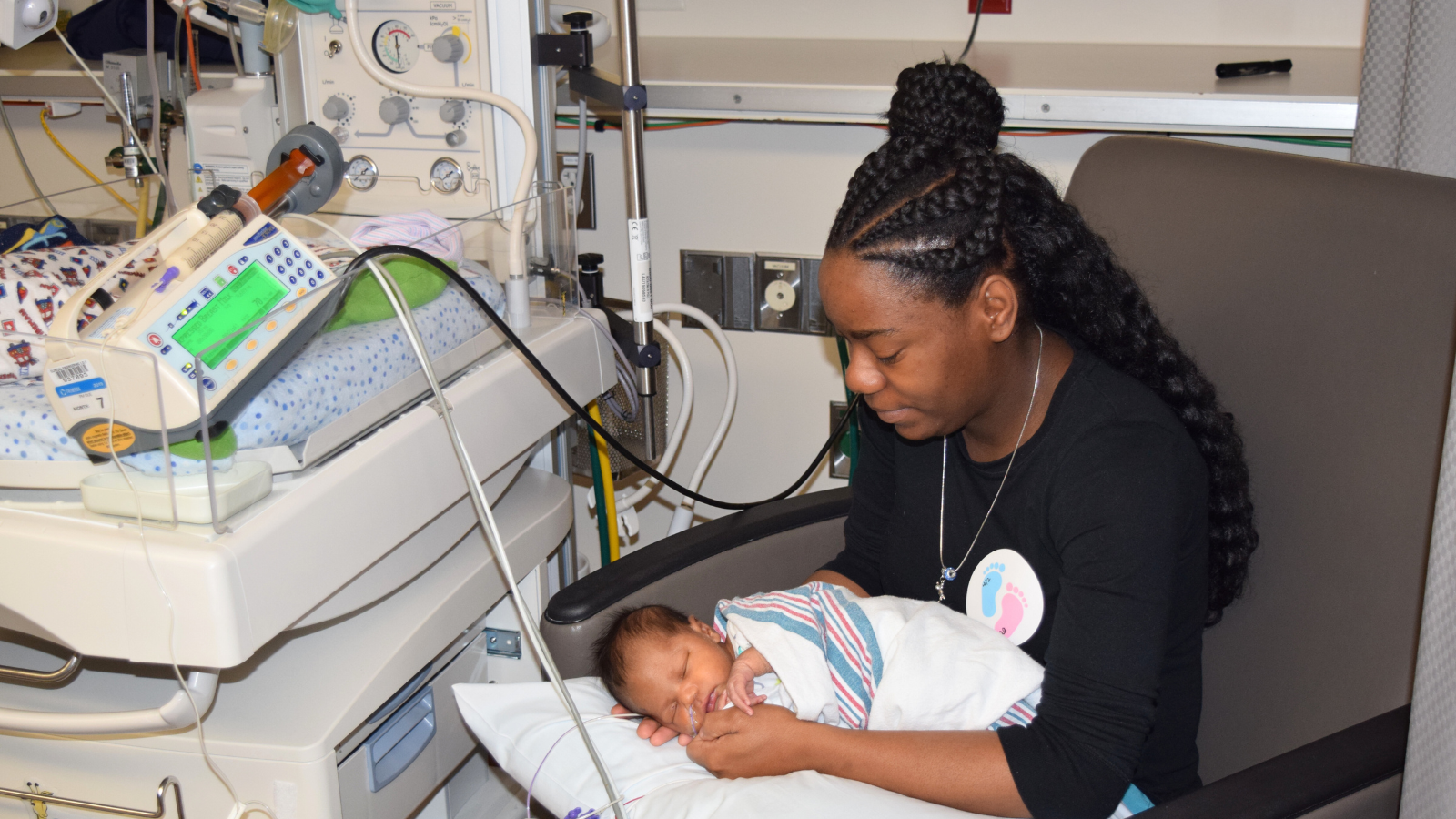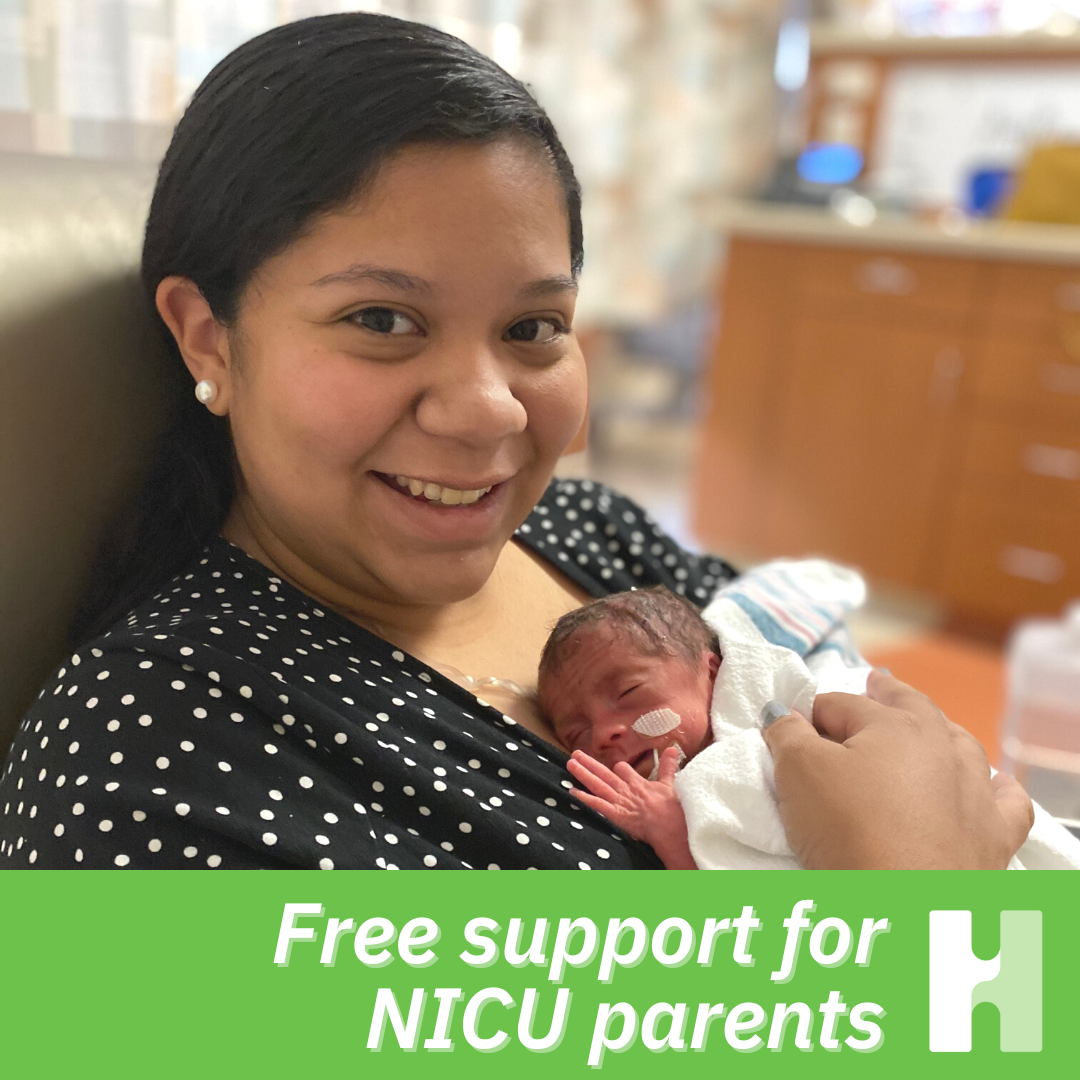
The NICU is a trauma-filled environment. Any time you or an extension of yourself experience a threat of danger, there is an opportunity to experience trauma. PTSD can present itself in or after the NICU. We spoke to Dr. Tiffany Gladdis, a Licensed Clinical Psychologist in Neonatology and the Medical Director of the Office of Equity and Diversity at Children’s Mercy Hospital, as well as an Associate Professor at the University of Missouri at Kansas City, about the difference between anxiety and PTSD, symptoms of PTSD, treatments and more.
In this post we talk about trauma and some of the triggers that you may experience in the NICU. Listen to the full episode here and watch the conversation on YouTube below.
At one time we thought that post-traumatic stress disorder (PTSD) was something only experienced by veterans who had gone to war. We have since expanded our knowledge, awareness and normalization of what PTSD is.
How do you differentiate between anxiety and PTSD?
When we talk about perinatal mood and anxiety disorders (PMADs), there are three main categories:
- Perinatal depression
- Perinatal anxiety
- Perinatal psychosis
We use the term “perinatal” because these diagnoses can occur during pregnancy or afterwards, not just postpartum. PTSD falls under perinatal anxiety. While there are similarities between anxiety and PTSD, they are two distinct diagnoses.
Perinatal anxiety includes persistent worrying, checking on your baby, having concerns about their safety, etc, which is reasonable when your’e a NICU parent. In the NICU there are some very real situations that occur in the NCU that give parents anxiety.
While PTSD and anxiety can look similar, PTSD symptoms can also look different.
LISTEN TO THE EPISODE: DID I LEAVE THE NICU WITH PTSD?
Symptoms of PTSD in NICU moms
PTSD symptoms in NICU moms can include:
- Avoidance of the stimuli of the trauma – Sometimes is the NICU or the hospital where a life-threatening delivery occurred. For some it can even mean avoidance of the baby.
- Flashbacks – Parents may replay the scene in their head over and over, thinking about what they could have done differently or where things went wrong. They may replay what a doctor said or did or something they may have seen or witnessed.
- Hypervigilance – Hypervigilance means being attuned or paying extra attention to things. This isn’t uncommon with NICU parents, but some parents who may be experiencing PTSD may do so in an unhealthy manner.
- Withdrawal – Some parents react by not showing up as much. This is an unconscious action, to protect themselves emotionally. It can feel really scary to build a relationship with a baby you may not be sure you’ll leave the hospital with.
- Distractibility – The brain is so preoccupied with safety and security, it doesn’t have much space to take in other information.
PTSD in the BIPOC community
Often families of color don’t seek treatment when they experience PMADs. This means that there isn’t necessarily the data to represent that population. Black women and Latina women are three times more likely to experience PMADs. We can deduce that similar numbers are true for PTSD, especially for Black women, who we know historically have greater rates of infant mortality and maternal mortality and experience a lot more discrimination and racism in the perinatal world. Many women of color come into a delivery situation already traumatized from something they may have experienced before.
What are some potential triggers for PTSD?
Our bodies main goal is to keep ourselves and our babies safe. So it’s very easy for that trauma alarm to rise at the smallest indication that myself or my child may be in danger.
- Increased arousal to stimuli – The NICU is sensory overload: alarms, conversations, sometimes babies crying – all of which can be very overwhelming. Some parents describe a heightened arousal: their heart rate is increasing, their palms are sweaty, they have a knot in their throat or stomach. They may be sweaty, shaking, experience labored breathing. All of these are symptoms of arousal to stimuli.
- Redirection of care – In a care conference with a parent, the mention of redirection of care could be a trigger for the parent who has lost a baby or even family member in the past. The mention of death could bring on a rush of panic, guilt, fear, worry, increased heart rate, emotional shut down, physically fleeing the room, or more.
When you recognize that you’re reacting to these triggers, it’s important to reach out for help. A mental health professional can help you learn to calm that alarm. A mental health professional’s goal is to help you get ahead of the anxiety, so it doesn’t get in the way of you being able to have healthy interactions with your child, being able to make good clear medical decision for your child, caring for your other children or your partner, or your work and home life.
Treatment for PTSD after the NICU
- Psychotherapy with a psychologist is the first line of defense to help you process your trauma
- Narrative therapy – Many parents talk about their child’s medical history, but haven’t had the opportunity to talk about the emotional experience. Sometimes they don’t even feel comfortable sharing with family. The more you tell your story, the more you gain mastery over it. Now you can have some ownership over that story, rather than it being something that just happened to you. It gives you back control. And that helps decrease the trauma over time.
- Psychiatric help – For some parents, a psychiatrist may be able to prescribe medications that help manage anxiety or depression. It’s important to understand that this works well in addition to psychotherapy. Medication may help with the anxiety or depression, but it will not help you process your trauma.
- Couples therapy – You and your partner process things differently. Couples therapy can help you navigate your trauma together.
- Group therapy – Being in the NICU can be very isolating. Not everyone understands what you’re going through. In a group therapy setting, you can talk to others who are going through the things you are.
It’s so important to identify and treat the mental health of the parent so you can then be available to have that secure healthy bond with your baby. When you have that bond with your baby, your baby is then able to tolerate the stressors of their environment in a much healthier and more manageable way, which in turn helps them for the rest of their life.
Don’t forget NICU dads!
33% of NICU fathers experience PTSD, and they often have severe symptoms around six months postpartum. Dads in the NICU are going through the experience as well. Often they have experienced different trauma: seeing their partner in medical distress, having to make the decision to stay with mom or go with the baby, and more. Dads sometimes don’t give themselves as much permission to emote. Dads have a lot of pressure to hold it together and be strong for mom. But all of this is happening to them as well.
Advice for parents feeling overwhelmed and stressed
Sometimes just hearing that your feelings are normal is a huge help. It’s okay to feel your feelings.
Seek help. You don’t have to go through this alone. Sometimes you just need someone to hear you, whether it’s a mental health professional or a support group or a peer mentor.

